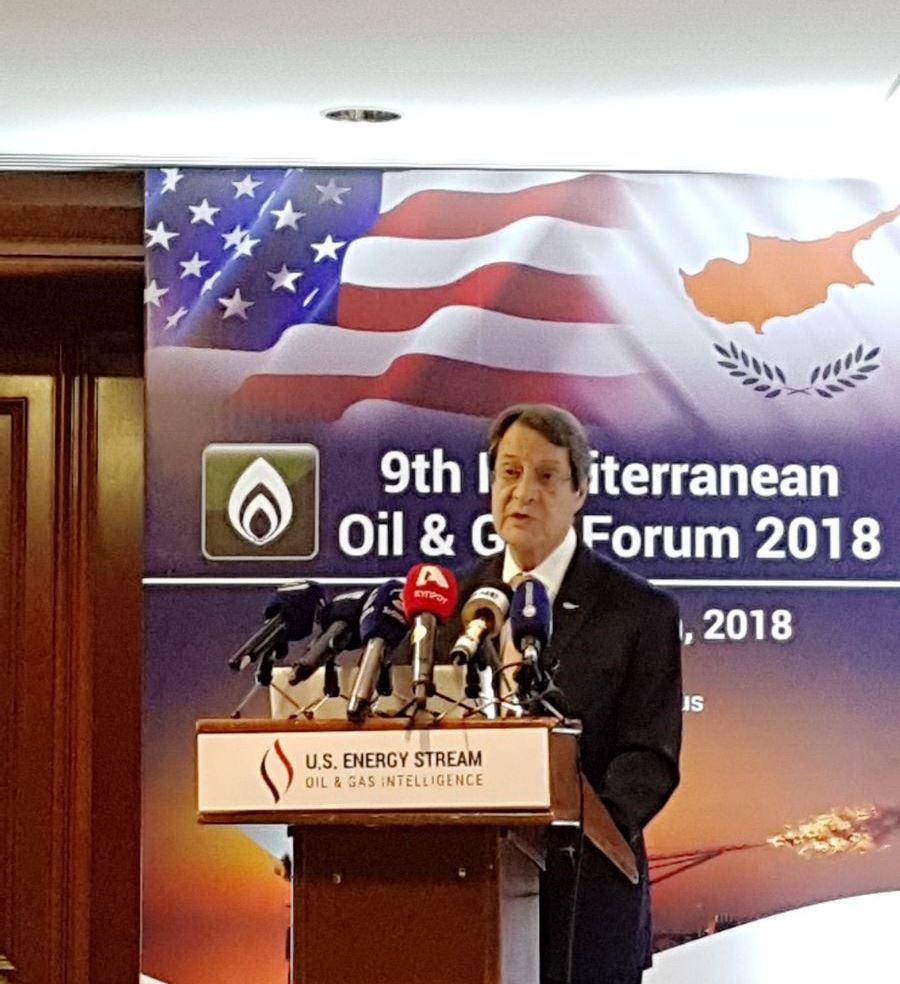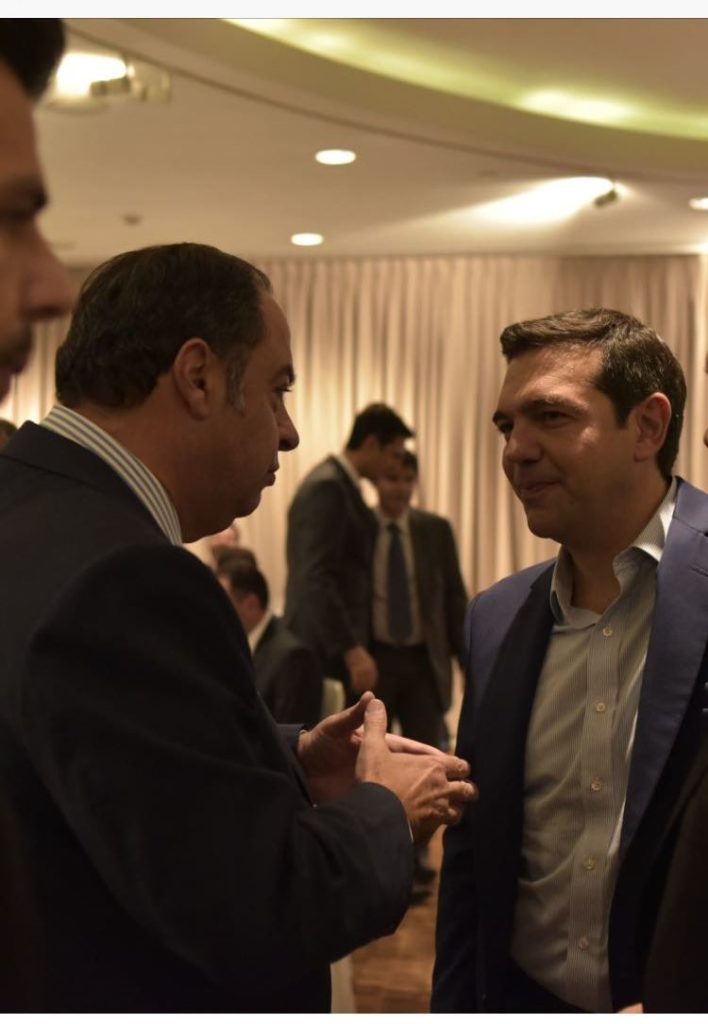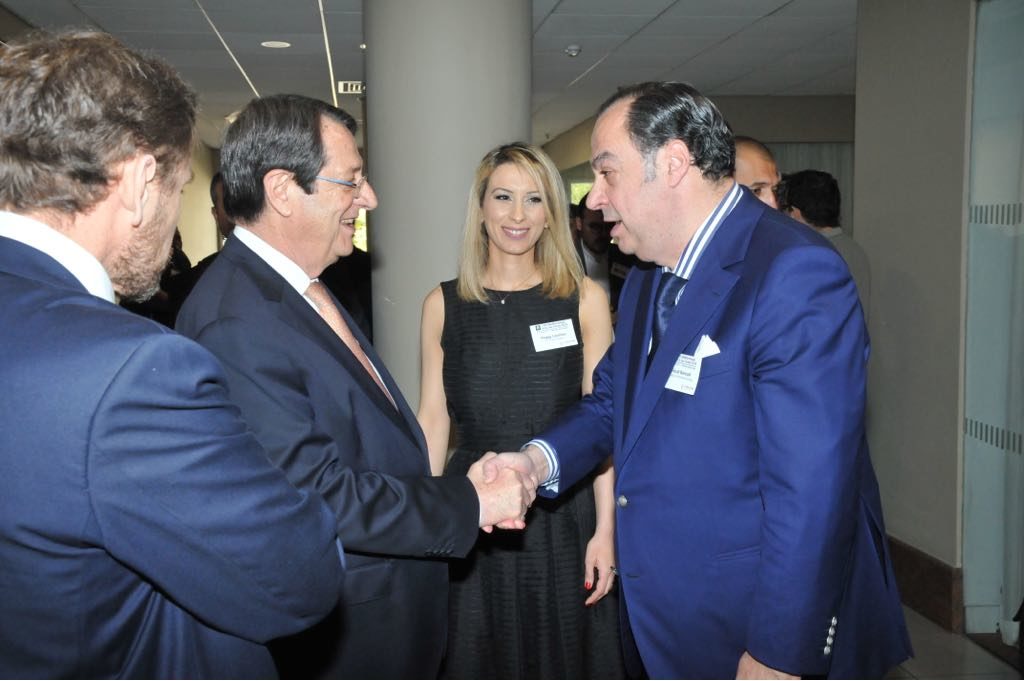
The visit by Cyprus’ foreign minister to Beirut this week is a reminder that several challenges lie between Lebanon and its dream of becoming an oil and gas producer. It also represents a welcome opportunity, however, to start clearing away some of the obstacles.
Without getting into the nitty-gritty details, the fundamental problem is that a line needs to be drawn that will delimit the respective Exclusive Economic Zones (EEZs) of Lebanon and Israel, and it needs to be agreed without any direct contact between two sides that have never had diplomatic relations and remain in a legal state of war.
Cyprus could well be one of the keys that unlocks Lebanon’s offshore riches, and not just because it’s a friendly neighbor that maintains good relations with both parties to this dispute: it also happens to own the third EEZ in this equation, and none of them can be finalized until a so-called “tripoint” is fixed where all three areas come together. The good news on this score is that Cyprus already has EEZ agreements with both Israel and Lebanon. The bad news is that there is an overlap between the Israeli and Lebanese claims in those pacts.

Apart from being well-positioned to help achieve the peaceful resolution that would serve both Lebanese and Israeli interests, Cyprus also has a vested interest in doing so. Any reduction in regional tensions, for example, would make its own offshore sector more attractive to international oil companies (IOCs) and other investors. Perhaps even more importantly in the long run, the sooner other Eastern Mediterranean countries start producing gas in significant quantities, the sooner Cyprus stands to emerge as the best collection point for a pipeline terminating on mainland Europe – and most possibly for a liquefied natural gas plant that would serve not only Europe but also growing energy markets in Asia.
For all of these reasons, the visit by Foreign Minister Nikos Christodoulides gives Lebanon’s leadership a perfect opening to investigate how Beirut and Nicosia might work together in order to further what is, at bottom, a shared cause. These should include purely bilateral steps designed to facilitate a solution and/or reduce tensions, but they also must be accompanied by a joint effort to enlist and retain the necessary outside support for what figures to be some difficult diplomacy.


The United Nations already plays multiple roles designed to prevent conflict between Lebanon and Israel, but there are other methods and mechanisms at its disposal. For several reasons, and always being careful not to prejudice its current or future positions, Lebanon would do well to investigate these options – including the provision for border mediation by the UN Secretary General contained in UN Security Council Resolution 1701 of 2006.
There is the matter, too, of the IOCs that have already won explorations rights off Lebanon’s coast. These are TOTAL of France, ENI of Italy, and Novatek of Russia, making it more than reasonable to ask that their respective governments – as well as the European Union itself – participate in efforts to seek a diplomatic solution.
Last but certainly not least, Beirut should do everything in its power to keep the United States involved. Two consecutive State Department envoys have tried to mediate the EEZ issue between Lebanon and Israel, and while their efforts have come up short thus far, this is one of those cases where America truly is the indispensable power. No other actor can so much as approach US influence over Israel, so its involvement is essential: even if an eventual solution is to come through a different diplomatic channel, the mere existence of an American one creates more time and space for other processes to play out.
As ever in such matters, it is impossible to predict the future. The Lebanese government can make a favorable outcome much more likely, however, by focusing on a few basic certainties. First, the best way to settle this issue is through diplomacy. Second, the safest way to conduct that diplomacy is in partnership with and/or via friendly governments, starting with that of Cyprus. Third, the surest way to give those partnerships time to succeed is to keep the United States at the table.
Given the number and severity of international crises raging around the world, this last point may require considerable effort. Washington has stakes in many of these hotspots, so the task is to make sure that this one receives all the attention it deserves. All the more reason to start now.
Roudi Baroudi is CEO of Energy and Environment Holding, a private consultancy based in Doha.


